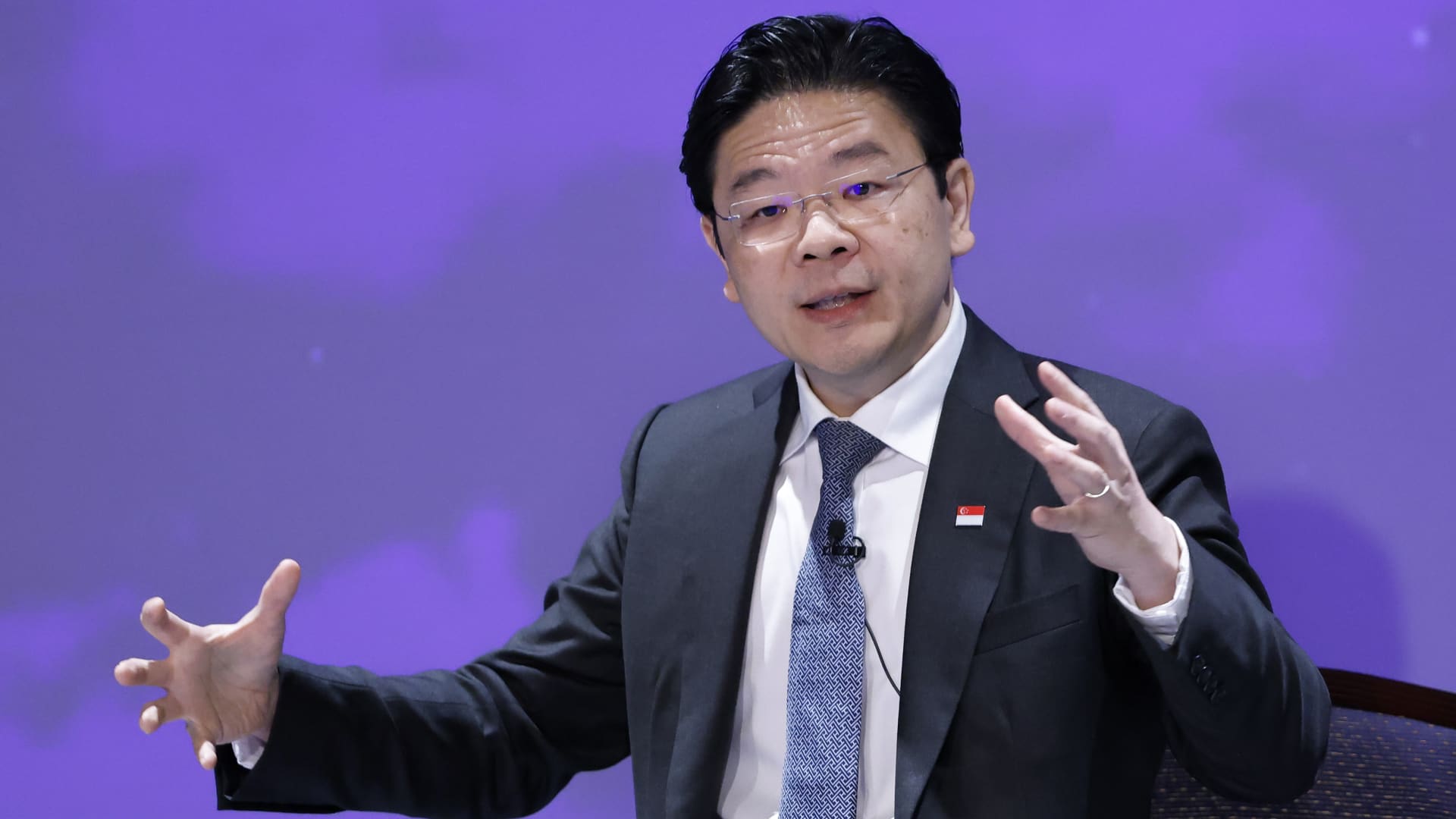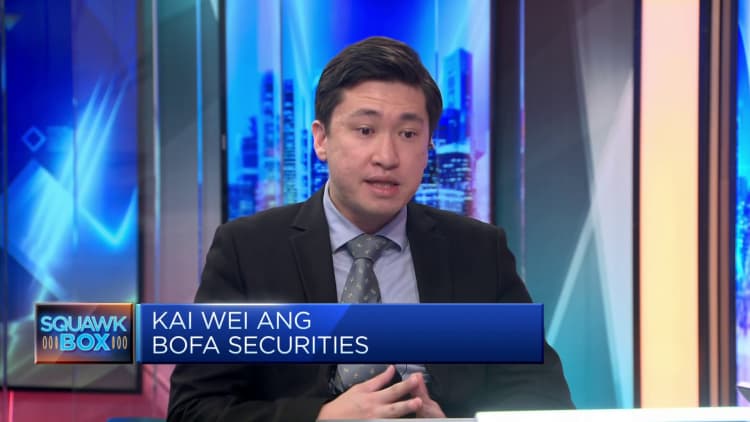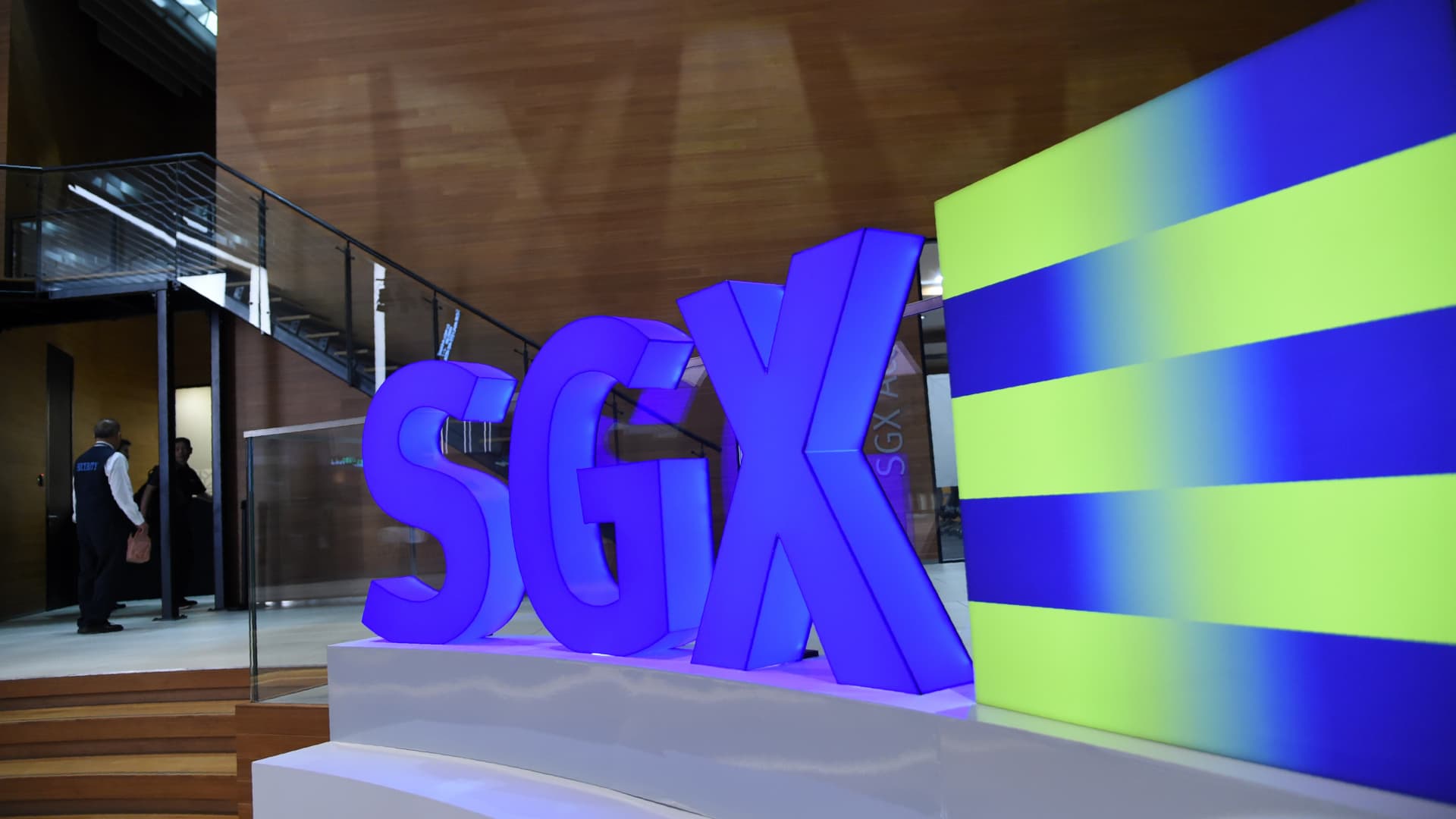Singapore pledges to support households and companies as costs rise; expects budget surplus in 2024
The government will provide more vouchers and cash handouts to Singaporean households, as well as rebates for utility bills. Companies will also get corporate tax rebates.

Lawrence Wong, Singapore's deputy prime minister and finance minister.
Kiyoshi Ota | Bloomberg | Getty Images
SINGAPORE — Singapore's budget deficit widened more than expected in 2023 but the country expects a small surplus in the 2024 financial year, Deputy Prime Minister and Finance Minister Lawrence Wong said in his budget speech on Friday.
The budget deficit for 2023 was revised to $2.67 billion (3.6 billion Singapore dollars), representing about 0.5% of its gross domestic product, Wong told parliament. An earlier estimate projected a much smaller deficit of about SG$400 million.
Wong said a small surplus of SG$800 million is expected for the 2024 financial year, which runs from April 1, 2024 to March 31, 2025.
The Southeast Asian nation has a constitutional requirement for the government to maintain a balanced budget over each parliamentary term — which means it cannot run a deficit at the end of its term.
Singapore's next general elections must be held by November 2025.
'We will always have your backs'
In his budget speech Friday, Wong announced that the city-state will increase support for households and companies as the country continues to grapple with higher prices.
The government will also be providing more vouchers and cash handouts to Singaporean households, as well as rebates for utility bills through the so-called Assurance Package that's designed to help households cope with rising costs.
The total bill for these added household measures will come up to an additional SG$1.9 billion.
Separately, Wong also announced that there will be a 50% personal income tax rebate for 2024, which will cost the government SG$350 million.
"Let me assure everyone, we will always have your backs."
Unemployment support
Notably, Wong announced that Singapore will introduce a temporary financial support scheme later this year for workers who have been laid off.
This marks a shift for Singapore, which currently has no unemployment benefits for such workers and has long resisted such measures.
Wong explained that workers who have their jobs "will feel the pressure to rush into the first available job they find" even if it is not a good fit.
Ideally, he said these workers should consider upgrading their skills and finding jobs that fit their aptitude and talent, but they may not have the means or time to do so, especially when they're trying to make ends meet.
The new scheme will help such workers while they undergo training or look for better fitting jobs.
Still, he cautioned the program must be "carefully" designed to consider the level, length and conditions of financial support in order to "avoid the pitfalls that other countries experience when they introduce unemployment benefits."
Business incentives
Companies in the city-state will also get more support amid higher business costs, Wong said, announcing the Enterprise Support Package worth SG$1.3 billion.
All companies in Singapore will get a 50% corporate income tax rebate, capped at SG$40,000.
Cash payouts of at least SG$2,000 will also be given to companies who hired at least one local employee in 2023.
"The enhanced Assurance Package and the Enterprise Support Package will provide some near-term relief to Singaporean households and firms. These are needed during this period when inflation, while moderating, remains on the high side," said Wong.

"But they are not permanent solutions. Over the longer term, the best way to deal with inflation is to ensure that our firms and workers are more productive, and that real incomes continue to rise sustainably."
Singapore's headline inflation in December stood at 3.7% in December, having steadily fallen since its peak of 7.5% recorded in September 2022.
Core inflation — which strips out prices of accommodation and private transport — is expected to slow to an average of 2.5% to 3.5% for 2024, the Monetary Authority of Singapore projected.
Separately, Wong said Singapore will still need to attract investments. He announced a tax credit scheme for companies that make sizeable investments in the country in key areas which benefit Singapore.
Called the Refundable Investment Credit scheme, the credits are to be offset against the company's corporate income tax.
Any credits that are not utilized will be refunded to the company in cash within four years from when they satisfy the conditions for receiving the credits.
Corporate tax
On corporate income tax, Wong said Singapore will implement two components under pillar 2 of BEPS 2.0 — or Base Erosion and Profit Shifting. It is an OECD project where more than 140 jurisdictions have agreed to bring the minimum effective tax rate of large corporates to 15%.
The two components will be the Income Inclusion Rule and the Domestic Top-up Tax. Both will take effect for financial years starting on or after Jan. 1, 2025, and will apply to multi-national enterprise groups with global revenue of at least 750 million euros ($808.5 million) annually.
The IIR will tax overseas profits of MNE groups that are parented in Singapore to a minimum effective tax rate of 15%, regardless of where they operate. The DTT will subject those companies to a minimum effective tax rate of 15% on their Singapore profits.
It is in Singapore's interest to implement the DTT so the Republic can collect the tax, "rather than have it go somewhere else," Wong said.
Singapore's corporate income tax currently stands at 17%, although some pay less than that as a result of tax reliefs and incentives.
He said the European Union, the UK, Switzerland, Japan and Korea have said they will implement pillar 2 rules from 2024, while Hong Kong and Malaysia announced plans to do so from 2025.
"In the short term, the implementation of pillar two will provide additional revenues. But it is uncertain how much of this will be or how long it will last," Wong said.
In fact, he said Singapore may even see a reduction in its tax base, should multinational companies shift their business activities to other jurisdictions as a result of these changes.

 KickT
KickT 































